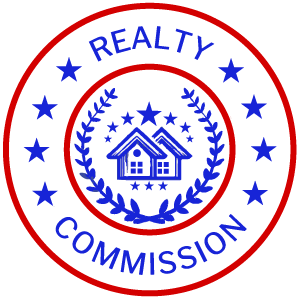From Passion to Profession
Hello everyone, I’m Emily Harper, an Affordable Housing Specialist with 12 years of experience in the real estate industry. Today, I am excited to share my story with you, a journey that has been shaped by a passion for making a difference in people’s lives through affordable housing initiatives.
My Journey to Affordable Housing
My path to specializing in affordable housing began with a background in social work, focusing on housing issues and community outreach.
Working directly with families struggling to find safe and affordable housing made me realize the crucial role a home plays in a person’s well-being. This perspective led me to transition into real estate, believing that a blend of social work principles and practical real estate skills could create a unique approach to tackling affordable housing challenges.
Transforming Communities
One of my most memorable projects involved securing affordable housing for the West Side community in Charleston. Collaborating with developers, city planners, and community groups, we ensured that 25% of the units in a mixed-use development were designated as affordable housing. It was a complex process that highlighted the importance of bridging the gap between business needs and community welfare.
Another project close to my heart was the conversion of a historic textile mill into affordable housing for veterans in Kanawha City. Navigating preservation guidelines and financial challenges, we successfully transformed the building into a welcoming space that honored our veterans while providing affordable homes.
These experiences solidified my passion for affordable housing as more than just transactions but as avenues to create meaningful impact in communities.
Staying Informed and Engaged
To stay informed about current trends and regulations in affordable housing, I actively engage in workshops, seminars, and certifications offered by industry associations. I also maintain close connections with local organizations and community groups to stay abreast of ground-level issues and advocate effectively for my clients.
Building relationships with stakeholders such as developers, government agencies, and non-profit organizations is about collaboration, respect, and a shared commitment to the community.
By understanding each stakeholder’s perspective and finding common ground, I have navigated conflicting priorities to achieve successful outcomes in affordable housing projects.
Turning Obstacles into Opportunities
One of the most challenging projects I faced was the conversion of the textile mill, where strict preservation guidelines and financial constraints posed significant obstacles.
Through collaboration, creative solutions, and transparent communication, we overcame hurdles to create a space that served its purpose while preserving its historical integrity.
Building Bridges
Increasing access to affordable housing in underserved communities requires strategic partnerships, policy advocacy, community engagement, innovative financing, and education initiatives.
By leveraging these strategies, we can create sustainable and inclusive housing options for all income levels.
Managing the Complexity
Managing multiple affordable housing projects simultaneously requires meticulous planning, effective communication, delegation, hands-on quality control, time management, and adaptability
By prioritizing these aspects, we can ensure that deadlines are met and quality is maintained across projects.
Finding Common Ground
Critical issues facing affordable housing initiatives today include funding shortages, restrictive zoning laws, rising construction costs, and community stigma. Addressing these challenges involves fostering public-private partnerships, advocating for policy reforms, exploring innovative financing options, engaging communities, and promoting long-term affordability measures.
Handling conflicting priorities among stakeholders involves fostering open communication, identifying shared goals, finding compromises, being transparent about constraints, and emphasizing the overarching mission of providing safe, affordable housing for all.
Budgeting for Sustainable Housing
Budgeting and financial planning for sustainable affordable housing projects require detailed budgets, diverse funding sources, long-term forecasting, oversight, collaboration with property management teams, and a focus on balancing financial responsibility with the mission of creating quality, accessible housing options.
Advancing Affordable Housing in the Years Ahead
My motivation to continue working in the affordable housing sector stems from the direct impact it has on individuals and communities. Looking ahead, I aspire to undertake larger-scale projects, deepen knowledge in sustainable building practices, advocate for policy changes, mentor future professionals, and play a significant role in improving accessibility to affordable housing for all.
As I reflect on my journey in the real estate industry as an Affordable Housing Specialist, I am filled with gratitude for the opportunities to make a positive impact in people’s lives through these initiatives.
To me, it is not just about building structures; it is about building hope, stability, and a sense of belonging in the communities we serve. Join me in building a brighter and more inclusive future through affordable housing!



